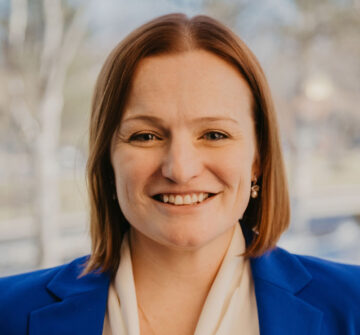As part of its new 2035 Fund, the Massachusetts Life Sciences Center (MLSC) launched the Accelerating Research through Collaboration (ARC) Awards to accelerate the research of pressing life science questions through collaboration and to attract and train scientists in the Commonwealth. The ARC Awards are focused on three tracks: Bits to Bytes, Novel Therapeutics Delivery, and Women’s Health Collaboration.
In recognition of the 2035 Fund’s launch, the MLSC is proud to highlight the Broad Institute and Dr. Anthony Philippakis’ 2019 project involving the utilization of data-driven approaches to further research and identify trends in cardiovascular diseases.
Dr. Philippakis, now a General Partner at Google Ventures, was Chief Data Officer at the Broad Institute when he and Bayer Pharmaceuticals approached the MLSC with an idea: to leverage large-scale health data and machine learning tools to develop new ways to identify people at risk of cardiac events.
The MLSC awarded the team $750,000 through the MLSC’s Bits to Bytes program. This allowed the Broad and Bayer to use computational biology and machine learning to dive into large-scale UK Biobank data and develop new methods for identifying clinically relevant cardiovascular disease subsets. The cross-sector project leveraged a skilled team comprised of individuals with expertise in machine learning and cardiovascular disease biology, as well as a postdoctoral researcher funded by Bayer, bridging the gap between academia and industry to work toward a transformative impact on translational medicine.
Despite recent advances in the management of cardiovascular diseases, conditions continue to account for substantial costs for patients suffering from these associated diseases. According to the U.S. Centers for Disease Control and Detection, heart disease is the leading cause of death for people of most racial and ethnic groups in the United States. Furthermore, in the United States, one person dies every 34 seconds from cardiovascular disease.
The project team set out to refine the way cardiovascular diseases are classified, while developing open-source tools that would be made available for other researchers to use in the creation of new products and therapies worldwide. By utilizing both machine learning and cloud computing, the team could broaden understanding of disease risk while improving patient categorization, treatment pathways, and clinical trial design.
The project proved to be a resounding success. The team was able to analyze and process rich multimodal data from the UK Biobank, including cardiac, abdominal, liver, and brain MRI, electrocardiograms (ECGs), carotid ultrasounds, and body composition scans. Using this data and their computational methods, they found previously unreported features that are associated with cardiac structure and function, and found correlations between specific genes and unique cardiac diseases. The team released a variety of open-source tools and methods that the global research community has been able to use to run analyses in other impactful research projects. These resources have already resulted in several scientific publications related to innovative research in cardiovascular disease. Data from this award is publicly available, and the toolkit for machine learning on clinical data of all kinds including genetics, labs, imaging, clinical notes, and more can be accessed in the MLSC D.A.T.A Repository.
According to Mahnaz Maddah, Director of Machine Learning for Health at the Broad Institute, the funding from this MLSC program has enabled research that has led to 26 scientific publications to date in academic journals, with more under review, all driving innovation across cardiology, neurology, and beyond.
The Bits to Bytes program provides grants for scientific projects that generate and analyze large datasets using Artificial Intelligence or Machine Learning to answer pressing life science questions, and to attract and train data scientists in the Commonwealth. Since the program’s inception, the MLSC has awarded $27.6 million in capital funding through the Bits to Bytes program. Approximately, $750,000 in funding per project has gone to 38 data-driven, cross-sector projects focused on imaging, cancer, neuroscience, drug discovery and clinical trial design that develop capital assets, data resources, and novel algorithms to address a myriad of health issues. Additionally, the success of these projects has led to over $94 million in follow-on funds, 186 publications, and 9 patents filed.
The application deadline for the ARC Awards, including its Bits to Bytes track, is Nov. 21, 2025 at 1 p.m. EST. Click here to learn more.


